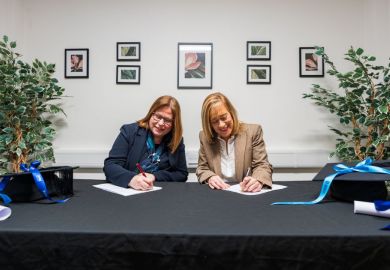Open and distance learning (ODL) universities must determine their “competitive advantage” rather than “parroting” that their value lies in convenience and flexibility, the director of the Observatory on Borderless Higher Education has claimed.
Richard Garrett said that the rise of online education and the trend of traditional institutions becoming more versatile means that “the tide is against” ODL universities and the “onus” is on them to clarify their relevance.
“I don’t think right now it’s clear enough from those institutions what their competitive advantage is, but there is more and more pressure for them to sort that out,” he told Times Higher Education.
He suggested that their distinctive characteristics could be their size, expertise, student support or student outcomes.
Mr Garrett was speaking to THE following the publication of the report, The State of Open Universities in the Commonwealth: A Perspective on Performance, Competition and Innovation, which he wrote for the Commonwealth of Learning. The study examined 10 specialist ODL universities in the Commonwealth.
He said that several of the universities recently experienced “some kind of stress”, such as drops in student enrolments or loss of funding.
Mr Garrett cited the UK’s Open University, which last month posted a £7 million loss after shedding a third of its student enrolment in six years amid a national collapse in part-time study.
“They’re experimenting through FutureLearn and on the Moocs [massive open online learning] side. I think in a way that kind of forced innovation is quite healthy,” he said.
“It shakes them out of the complacency of ‘well we’re the Open University, and we’re unique and special’.”
But he added: “Can they claw back some of their market share by proving that if you go to the OU you’re going to get a better experience as a non-traditional part-time adult student than you get by going to some random UK university? I don’t think they’ve answered that question.”
He said that many ODL institutions experience a “tension” between enabling access to non-traditional students and delivering a quality student experience.
“There’s plenty of scope for improvement, and technology should allow these institutions to save money on delivery and think about what human intervention they can weave in to leverage best practice in teaching and learning in that environment,” he said.
Register to continue
Why register?
- Registration is free and only takes a moment
- Once registered, you can read 3 articles a month
- Sign up for our newsletter
Subscribe
Or subscribe for unlimited access to:
- Unlimited access to news, views, insights & reviews
- Digital editions
- Digital access to THE’s university and college rankings analysis
Already registered or a current subscriber?





